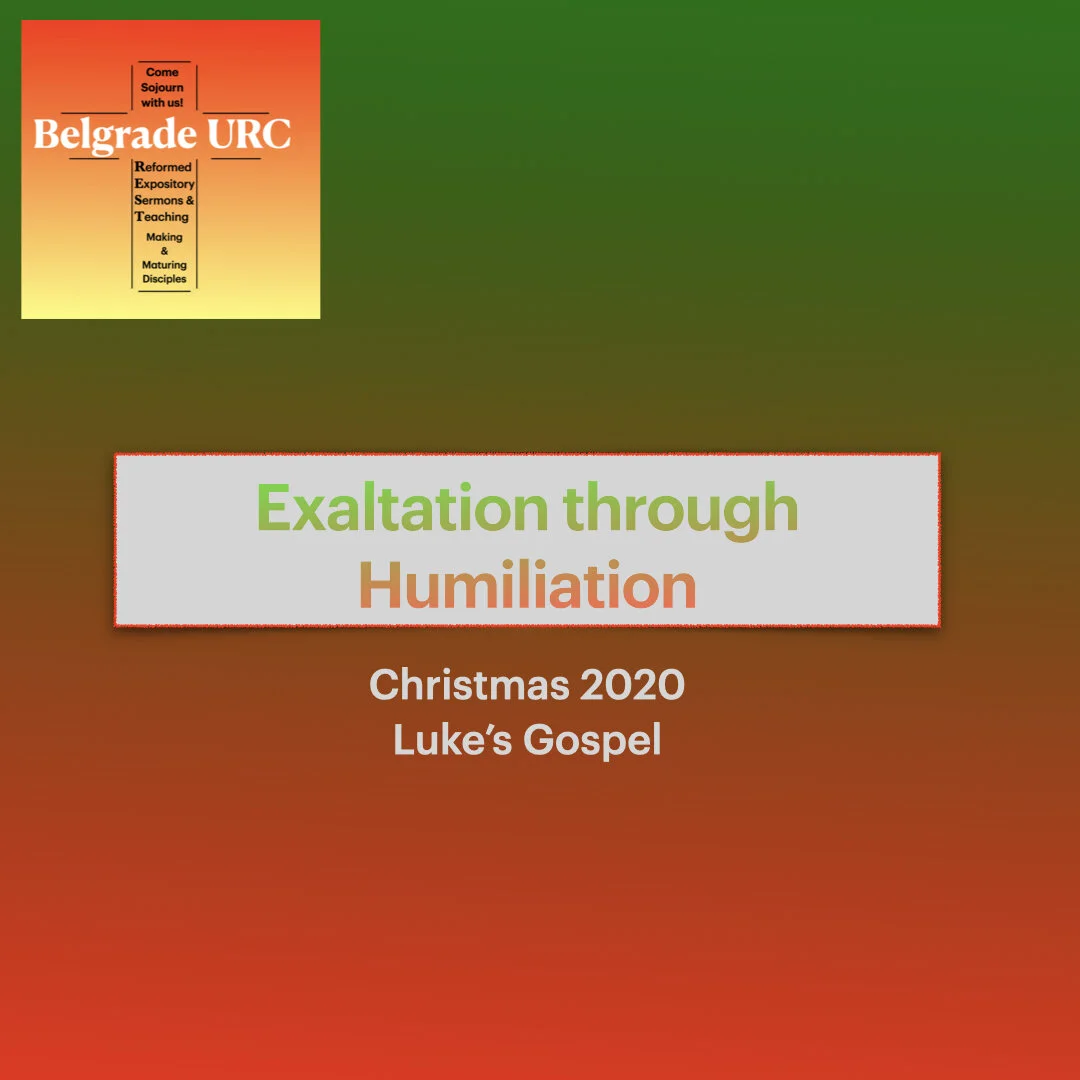Worship 10 am & 6 pm
Belgrade United Reformed Church
17333 Frontage Road
Belgrade, MT 59714

God's Family: Consecrated in Perfection (Matthew 3:13-17; Luke 3:21-22)
This sermon explores Christ’s baptism through the complementary Gospel accounts of Luke and Matthew, showing how each evangelist emphasizes a distinct theological perspective without contradiction.
Luke highlights humility, reversal, and inclusion, revealing a kingdom where God exalts the lowly and forms a new family grounded in grace rather than status.
Matthew emphasizes fulfillment, covenant faithfulness, and judgment, presenting Jesus as Israel’s Messiah who relives and completes Israel’s story by submitting to divine judgment to “fulfill all righteousness.”
Together, these accounts reveal baptism as the moment Christ publicly consecrates Himself to bear judgment for His people and secure true peace with God. Jesus is shown to be both the humble King and the righteous Judge, welcoming outsiders while confronting self-righteousness. The family of God is not built on merit or despair, but on redemption accomplished by Christ alone. True shalom is found only in Him, calling all people, exalted and humble alike, to find their identity, confidence, and life in Christ, the great equalizer.

God’s Family: Simple and Lowly People (Luke 2:1-20)
Luke’s birth narrative turns expectations upside down. The true King enters history unnoticed by insiders but welcomed by outsiders. Through mangers, shepherds, and quiet faithfulness, Luke shows that Christ comes not to the worthy, but to make the unworthy worthy.

God's Family: Stranger Danger (Matthew 2:1-12)
In Matthew’s Gospel, we find two kinds of people in God’s kingdom. There are those inside and there are those outside the covenant line. The surprising truth is that the outsiders, represented by the Magi, are the ones who recognize and worship Christ, while the insiders, represented by Herod and Jerusalem, miss His coming. This message challenges us to consider where true belonging in God’s family comes from—not heritage or status, but faith in Jesus Christ. Through the story of the Magi, Matthew reveals that Christ came to bring even the farthest outsiders into His family, transforming strangers into beloved sons and daughters of God.

God’s Family: Joseph Son of David (Matthew 1:17-25)
This sermon reflects on how God faithfully works through broken family lines, centering on Joseph as the quiet, righteous link between David’s promises and Christ’s birth. Matthew’s genealogy reveals that God does not need perfect people, but uses flawed, ordinary sinners to bring the Messiah into the world. Joseph’s obedience in taking Mary as his wife, bearing public shame, and naming the child “Jesus, Yahweh saves”, secures Jesus’ legal place in David’s line and displays what true righteousness is: humble trust in God’s redemptive plan. Through Emmanuel, “God with us,” God triumphs over human sin, fulfills His covenant, and graciously calls us into His family, assuring believers that His promises will never fall flat.

















